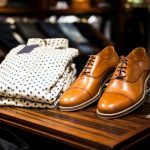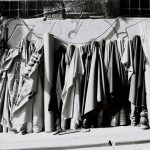If you’re looking to buy fabric in Bangladesh, focus on major hubs like Dhaka’s Karwan Bazar or Narayanganj, known for quality and variety. Choose from natural cotton, silk, or blended synthetics, all at competitive prices. Reliable suppliers offer samples, flexible orders, and secure payment methods like bKash or PayPal. By understanding fabric types and supplier reputations, you’ll confidently navigate options and get great deals. Discover more key tips to make your fabric purchase smooth and secure.
Table of Contents
Key Takeaways
- Bangladesh’s textile hubs include Dhaka, Chittagong, and Narayanganj, offering diverse fabric selections from local and imported sources.
- Major fabric buying houses like Aarong, Cotton Club, Textile Bazaar, FabBangla, and Fabric House BD cater to various fabric needs and budgets.
- Buyers should evaluate supplier reliability, fabric variety, reputation, communication responsiveness, and compliance with industry standards.
- Negotiating bulk discounts, requesting fabric samples, and building supplier rapport are essential for securing quality fabrics at fair prices.
- Secure payment methods such as PayPal, bKash, and Nagad ensure financial safety and enhance online fabric shopping confidence.
Overview of the Textile Industry in Bangladesh
Although you mightn’t realize it, Bangladesh’s textile industry plays an essential role in the global market. When you explore fabric buying houses here, you tap into one of the world’s largest apparel producers.
The industry employs millions and greatly contributes to the country’s economy through exports. You’ll find that many factories focus on ready-made garments, but the textile sector also includes spinning, weaving, and dyeing.
This vertical integration means you get access to a broad range of services under one roof. As you navigate this market, you’ll notice competitive pricing paired with improving quality standards.
Understanding this industry’s scale and capacity helps you make informed decisions and build strong partnerships with local suppliers.
Types of Fabrics Commonly Available
When you explore fabric buying houses in Bangladesh, you’ll find a wide range of popular natural fabrics like cotton and silk.
You’ll also come across various synthetic options such as polyester and nylon.
Plus, blended fabrics combining the best of both worlds are commonly available to suit different needs.
Popular Natural Fabrics
Many natural fabrics dominate the market in Bangladesh, offering you a rich selection for your textile needs.
Cotton, known for its breathability and softness, remains a top choice for everyday wear. You’ll also find jute, a versatile and eco-friendly fiber, widely used in bags and home textiles.
Silk, prized for its luxurious texture and sheen, suits special occasions perfectly. Linen, made from flax, provides durability and a cool feel, ideal for hot climates.
Wool, though less common, is available for warmer clothing. When you shop, you’ll notice these fabrics often come in vibrant colors and traditional patterns, reflecting Bangladesh’s rich cultural heritage.
Choosing natural fabrics guarantees comfort, sustainability, and timeless style for your wardrobe or projects.
Synthetic Fabric Varieties
Since synthetic fabrics offer durability and affordability, you’ll find them widely used in Bangladesh’s textile industry. Common synthetic options include polyester, nylon, acrylic, and rayon.
Polyester is popular for its wrinkle resistance and strength, making it great for everyday wear and home textiles. Nylon, known for its elasticity and smooth texture, is often used in sportswear and hosiery.
Acrylic mimics wool’s warmth but is lighter and more affordable, ideal for sweaters and blankets. Rayon, though semi-synthetic, is frequently grouped with synthetics due to its versatile, silky feel and breathability.
When buying synthetic fabrics, consider their specific properties like moisture-wicking or quick-drying features, especially if you need materials suited for activewear or outdoor uses. Understanding these varieties helps you select the perfect fabric for your needs.
Blended Fabric Options
Although pure fabrics have their place, blended fabrics offer you the best of multiple fibers combined.
When you explore fabric buying houses in Bangladesh, you’ll find common blends like cotton-polyester, viscose-polyester, and cotton-lycra. These blends enhance durability, comfort, and stretch, giving you versatile options for different garment types.
Cotton-polyester blends, for example, resist wrinkles and shrinkage better than pure cotton, making them popular for everyday wear. Viscose-polyester blends provide a silky feel with improved strength, ideal for formal attire. Cotton-lycra blends add stretch, perfect for activewear or fitted clothing.
Blended fabrics often cost less and maintain shape better, so you’ll get quality and value.
When choosing, consider the end use and care requirements to select the best fabric blend for your needs.
Leading Fabric Buying Houses in Major Cities
When you explore fabric buying houses in Bangladesh, you’ll find that major cities like Dhaka, Chittagong, and Narayanganj host some of the most reputable and efficient suppliers.
In Dhaka, areas like Karwan Bazar and Tejgaon are hotspots where you can access a wide range of quality fabrics, from cotton to silk blends.
Chittagong, known for its port, offers buying houses that specialize in both local and imported textiles, making it a strategic choice for diverse fabric needs.
Chittagong’s buying houses excel in local and imported textiles, ideal for diverse fabric selections.
Narayanganj, often called the “Manchester of Bangladesh,” features suppliers with strong connections to textile mills, ensuring competitive prices and fresh stock.
Factors to Consider When Choosing a Fabric Supplier
Exploring top fabric buying houses in Bangladesh’s major cities gives you a solid starting point, but choosing the right supplier involves more than location alone.
You need to assess their reliability by checking how consistently they deliver on time. Evaluate the variety of fabrics they offer to confirm they meet your specific needs.
Don’t overlook their reputation—look for reviews or ask for references. Consider their communication responsiveness; clear, timely responses can save you headaches later.
Also, verify their compliance with industry standards and certifications to guarantee fabric quality.
Finally, ascertain they’ve a flexible order policy that can accommodate changes or urgent requests.
These factors combined will help you find a fabric supplier who supports your business efficiently and effectively.
Tips for Negotiating Prices and Ensuring Quality
Securing the best prices while maintaining fabric quality requires strategic negotiation and a keen eye for detail.
Start by researching market rates so you know the fair price range. When you engage with suppliers, don’t hesitate to ask for discounts on bulk orders or long-term contracts.
Research market rates and confidently request discounts for bulk purchases or extended agreements.
Always request fabric samples to personally assess texture, durability, and color consistency before committing. Pay attention to the finishing and stitching quality.
Be clear about your quality expectations upfront to avoid surprises later. If a price seems too good to be true, question it—there might be hidden compromises.
Remember, building a good rapport with suppliers can lead to better deals and priority service.
Negotiation isn’t just about lowering prices; it’s about ensuring value for your investment.
How to Verify Authenticity and Fabric Standards
Although fabric quality can often be assessed visually, verifying authenticity and fabric standards requires a more thorough approach. Start by requesting certification or test reports from the supplier—these documents confirm fabric composition and compliance with industry standards.
Feel the fabric to check for consistency and uniformity in texture. If possible, ask for samples to conduct your own tests, such as burn tests or washing trials.
Research the supplier’s reputation by reading reviews or asking for references from other buyers. Don’t hesitate to verify the origin of materials, especially if you’re buying high-end fabrics like silk or organic cotton.
Utilizing Online Platforms for Fabric Purchases
When you shop for fabric online in Bangladesh, knowing which stores are popular can save you time.
You’ll also want to make sure the payment methods are secure to protect your information.
Let’s explore the top online fabric stores and how to pay safely.
Popular Online Fabric Stores
With the rise of digital marketplaces, you can now explore a wide range of fabric options from popular online stores in Bangladesh. These platforms offer convenience, diverse selections, and detailed product descriptions, making your fabric buying experience smoother. Whether you’re seeking cotton, silk, or synthetic materials, these stores have you covered with competitive prices and reliable delivery.
| Store Name | Specialization | Website |
|---|---|---|
| Aarong | Traditional fabrics | www.aarong.com |
| Cotton Club | Cotton fabrics | www.cottonclubbd.com |
| Textile Bazaar | Mixed fabrics | www.textilebazaar.com.bd |
| FabBangla | Designer fabrics | www.fabbangla.com |
| Fabric House BD | Affordable fabrics | www.fabrichousebd.com |
Explore these sites to find fabrics that suit your style and budget.
Secure Payment Methods
Since online fabric shopping continues to grow, you need secure payment methods to protect your financial information.
Always choose platforms that use encryption technologies like SSL to keep your data safe. Avoid entering your card details on unfamiliar sites; instead, use trusted payment gateways such as PayPal, bKash, or Nagad, which offer buyer protection.
Consider using virtual cards or prepaid payment options to limit exposure. Also, enable two-factor authentication whenever possible to add an extra layer of security.
Keep your device’s software updated to prevent vulnerabilities. By following these steps, you’ll confidently navigate online fabric stores in Bangladesh without risking your financial safety.
Secure payments guarantee a smooth and worry-free shopping experience every time you shop for fabric online.
Frequently Asked Questions
What Are the Payment Methods Accepted by Fabric Buying Houses?
You’ll typically find fabric buying houses accept payments via cash, credit/debit cards, mobile banking apps, and sometimes bank transfers. Make sure to confirm with the seller beforehand to avoid any payment issues during your purchase.
Can Fabric Buying Houses Provide Custom Fabric Dyeing Services?
Yes, many fabric buying houses offer custom dyeing services tailored to your needs. You can request specific colors or patterns, and they’ll work with you to create the exact fabric you’re looking for, ensuring quality results.
What Is the Usual Lead Time for Fabric Order Delivery?
You’ll usually wait about 7 to 14 days for fabric order delivery. Curiously, 60% of suppliers can speed up orders with extra fees, so you can get your fabrics faster when you’re in a rush.
Are There Any Fabric Buying Houses Specializing in Eco-Friendly Materials?
You can find fabric buying houses specializing in eco-friendly materials. They focus on organic cotton, bamboo, and recycled fabrics. Just ask for certifications and sustainable sourcing to guarantee the materials meet your eco-conscious standards.
How Do Fabric Buying Houses Handle Returns or Exchanges?
You’ll find fabric buying houses usually accept returns or exchanges within a set period, often requiring original receipts and undamaged goods. Always check their specific policies beforehand, as conditions and timelines can vary widely.
- Does Chiffon Fabric Stink - July 15, 2025
- Does Chiffon Fabric Affect the Economy - July 15, 2025
- Does Cotton Fabric Have a Nap - July 15, 2025







